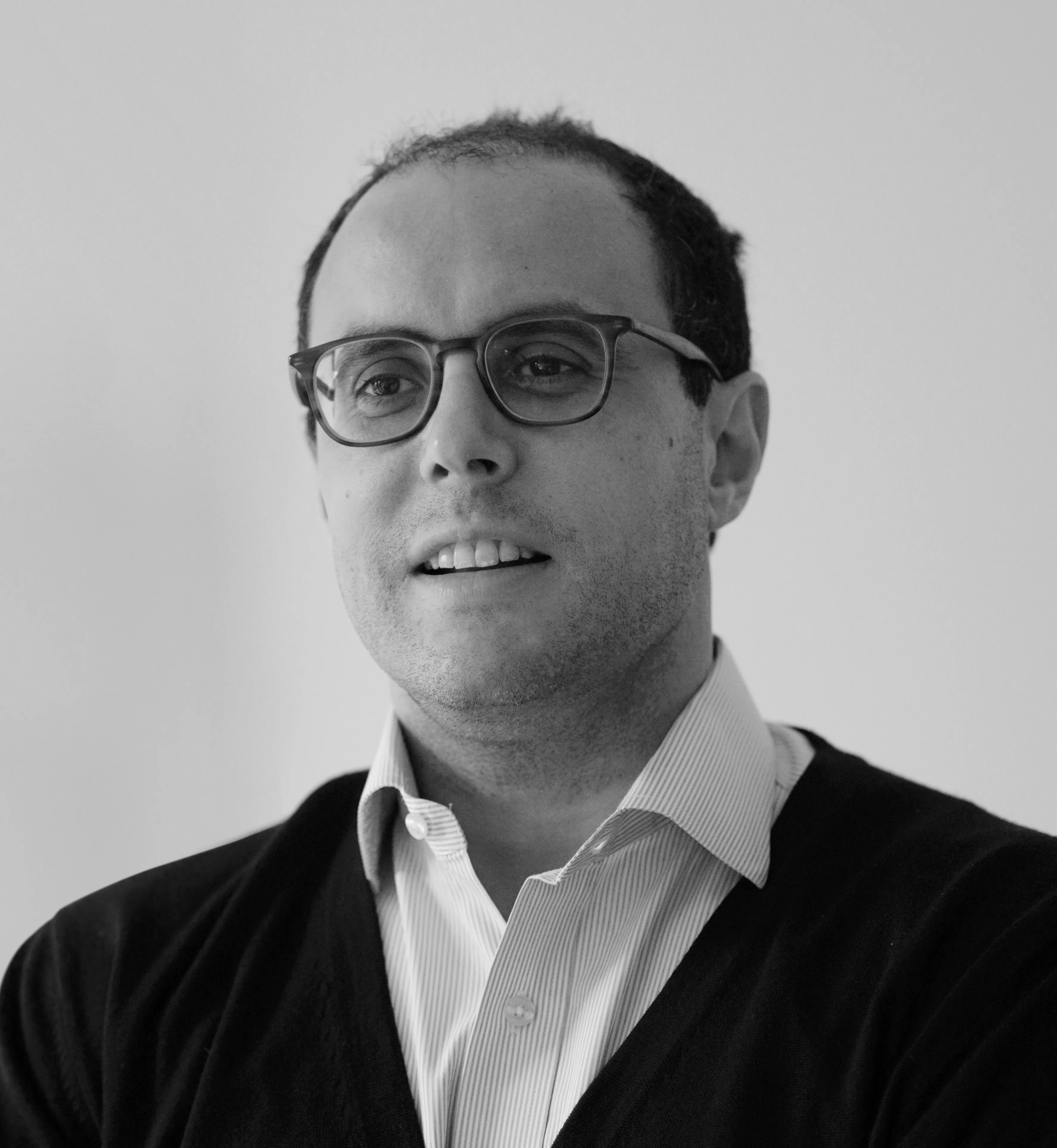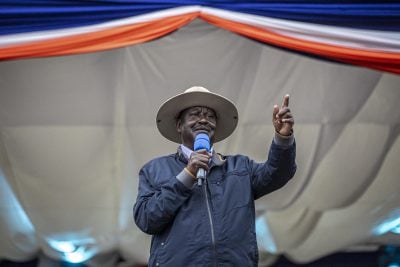African Business: What are you looking forward to this year at Davos? Artificial intelligence is going to be one of the areas of focus and you’ve just released a book on the fourth industrial revolution.
Landry Signé: For emerging technologies such as AI, the question of trust – as in how you can create trust in the context of the velocity of these innovations – will be extensively discussed at Davos. How to govern emerging technologies and artificial intelligence to serve humanity better? How to use emerging technology and AI to govern the world better, making humanity trustworthy, inclusive, safe, resilient, and sustainable? The rapid speed at which these technologies – AI, quantum computing, the metaverse, and others – are evolving will be a pressing question, especially as we try to grapple with the challenges relative to this constant evolution.
You can say that in many respects, there are competing priorities on the global agenda today. We have a multiplicity of crises evolving at an incredible pace and distracting from the priorities which were previously established.
And that is putting a lot of stress around the issue of trust. Trust in terms of technology and the trust that citizens have vis-à-vis their leaders, all of which has implications around the issues of governance, politics and the economy.
In terms of AI, there is the question of coordination. We have a multiplicity of actors and players – public sector, private sector, national, continental, global and even local – so who governs, who decides and who should be trusted?
The Forum is very good at navigating these complex problems and bringing about multi-stakeholder collaboration.
Would you say that Africa’s priorities have therefore been relegated because of global geopolitics, such as what’s happening in the Middle East, Ukraine and other places?
Momentum has been disrupted by Covid-19 and then the Russia-Ukraine aggression or war and now you have what is happening in the Middle East. So that is perhaps one of the challenges that the continent is facing. Yet everyone acknowledges Africa is extremely important and that more resources have to go towards the continent. When I testified before the House of Representatives, the Senate and the International Trade Commission, there was a consensus that Africa is a key actor on many fronts, that [the USA] cannot do without Africa and that [it] has to devote resources to Africa.
You have that convergence, and Africa being admitted to join the G20 is testament to that for example.
We have that positive momentum and a positive narrative about embracing Africa and its priorities. But undoubtedly these conflicts and different events have diverted resources that could otherwise have gone to Africa.
The second thing that has been very intentional – as I am the co-chair of the Regional Action Group for Africa, and we are fortunate to have Chido Munyati as Africa Head – is that Africa has a special spot at the World Economic Forum. So last year, we had that broader strategy for global business and investors to leverage the African Continental Free Trade Area. Following up on this, heads of state and of government and CEOs of multinationals have asked us to develop an action plan this year that will detail out strategic initiatives that can be done to drive forward investment into Africa. We will have a session at Davos where specific initiatives and activities will be discussed.
That’s why I wanted to make a distinction between the broader trends and what will be happening at Davos. At Davos, Africa will have a strong place and I feel we will come from a position of strength and preparedness with the participation and engagement of several key players from the private sector, such as Coca Cola, Pfizer, DP World, among others, all committing to pushing forward on these strategic initiatives.
You can say that the discussion is evolving from the potential of the AfCFTA to now having an action plan to deliver on that potential, with many of these private sector partners taking a serious interest and committing to leading on these initiatives. Coca Cola, YARA International, Agility, Volkswagen, Our Next Energy, DHL, the Forum’s Global Alliance for Trade Facilitation, the International Federation of Pharmaceutical Manufacturers and Traders and many others have featured initiatives.
We will be expecting many big announcements of ongoing or new initiatives about Africa, and we will be seeing first-hand how global businesses and investors are starting to leverage on the AfCFTA.
This will be a Davos of action. And if I’m not wrong, that is the very first action plan of this kind ever launched at Davos, thanks to the leadership and support of WEF executive chairman Klaus Schwab, WEF president Børge Brende and the WEF’s Africa’s Head Chido Munyati.
What does this action plan look like? Are there any highlights that you can share with us?
That’s a very good question. We have approached it differently because technically, most action plans – and we had this conversation and not all stakeholders agreed but I think we have converged now – will just define, almost abstractly, who should do what for some specific type of outcome to be achieved. Those action plans will also highlight extensively, the role of public leaders on the continent or continental institutions and so on. So that is what the typical action looks like.
For this one, we told our private sector partners, we have a specific mandate. What we want you to do is to develop new initiatives that you will be implementing independently of this report that you will be initiating and we will be working with you to also bring the support that you need to make them successful. So in other words, it’s not a hypothetical action plan where we come with a set of ideas and you say for it to be implemented, you need XYZ as we do in a typical action plan. Here, there will be a group of strategic initiatives led by the private sector on the specific steps that they are taking to leverage the AfCFTA and beyond that, to unlock and accelerate business and investment.
So last year, in the report we released, we had four sectors which were considered as priorities: agriculture and agro-industry; automotive; transport and logistics; and pharmaceuticals.
Across all of those four sectors we have organised seminars or workshops with multinationals and WEF partners and we have asked each of them individually to develop a specific plan on what some of the key opportunities are and how they are planning to seize them, as well as which specific initiative they can announce, allocate resources to, and implement in the short, medium and long run (2030 and beyond).
We are coming with specific commitments from companies to really expand as global businesses or as investors on the continent. So that’s why I’m really excited. It’s not just an abstract plan disassociated from reality. It is investor-led in the sense that the investors are committed and we reflect those commitments in each of the areas.
Coming back to AI, you’ve written extensively on the fourth industrial revolution. Do you think that from the continental perspective, we’re being left behind in terms of investment and regulation?
I was recently leading a panel and that was one of the key questions that we were discussing – on AI, where Africa is and how Africa relates to those conversations. ChatGPT celebrated its first year of being public a few weeks ago. In other words, the technology which has disrupted the world as we know it is barely one year old in terms of open usage. I am highlighting this because – and I attended the World Economic Forum AI Governance Summit in San Francisco last month – given the velocity at which technologies like AI are evolving, even the players and leaders in Silicon Valley were very clear in saying that we don’t know yet how to govern this. It’s very complex and we don’t even know that we can govern this holistically in a standard, centralised way.
Perhaps it will be sector-specific, topic-specific or it will be an application-specific type of governance. So on the continent of course, a lot needs to be done on the development and use of AI. Some countries are developing some AI strategies or AI governance strategies, including Morocco, Nigeria and Mauritius, among others. Again, the continent is lagging when it comes to being very intentional from the public components perspective about identifying the opportunity that AI is representing. And being intentional about crafting a strategy to leverage it to the maximum degree possible, not just preventing harm. I’m saying first unlock the economic potential. AI could be used to really address so many of the challenges that the continent is facing and to facilitate economic prosperity, systematisation of governance, health – many diagnoses could be made with the support of AI – and education.
So AI is really a phenomenal tool to address some of the continent’s most complex challenges. Right now, I am hearing many discussions [in Africa] on the risks it poses, more so than the breakthroughs it may unleash.
I am not discounting the important questions arising from cyber security threats, the proliferation of misinformation, biases, or gender representation. But we also need to look at its effective usages and be deliberate about integrating it into our development agenda so that we can create shared prosperity.
What about Africa’s critical minerals and the energy transition? Are they going to be part of the African discussion at this year’s WEF?
Critical minerals come up virtually in all the conversations that we have about green transition, not just about Africa.
To what extent are African leaders taking ownership, to define a strategy; a coherent, collective strategy? Especially, the countries which have the biggest reserves of critical minerals to work collaboratively to ensure that their perspective will be better represented and they will get the best value out of the minerals. Not just by exporting them as raw material but also to create value chain locally, nationally or continentally. That is a different question and I don’t have the answer.
Here again, I like to bring the notion of intentionality. Development is something very intentional and deliberate so leaders really have to be more intentional and more aggressive and more proactive at designing policy strategies which will have them leverage their natural assets.
What message do you want Africa’s leaders from public and private sectors to take to Davos?
First and foremost, the leaders of the continent have been speaking extensively about leading their own destiny and of the imperative of being respected, of having their voice heard. So, the first thing I would expect is for Africa to speak with one voice on issues such as the AfCFTA.
I’d also like our leaders, both public and private sector, to come with a business minded approach. Davos is not just a place to go and speak; it’s a place to make deals. What are their needs? Can they identify clearly what their needs are and identify potential partners, whether within the continent or international global partners?
The third point is for them to articulate Africa’s unique value, and that we have a unique contribution to make and that we bring to the world.
Lastly, it’s to bring a commitment to peace, security and accountable governance. Because for trade to be unlocked, for economic opportunities to be unlocked, we need a safe, secure and a more accountable continent. I think that those are some of the dimensions that I would really like them to speak about.
Want to continue reading? Subscribe today.
You've read all your free articles for this month! Subscribe now to enjoy full access to our content.
Digital Monthly
£8.00 / month
Receive full unlimited access to our articles, opinions, podcasts and more.
Digital Yearly
£70.00 / year
Our best value offer - save £26 and gain access to all of our digital content for an entire year!

 Sign in with Google
Sign in with Google 



